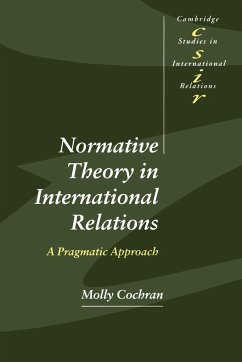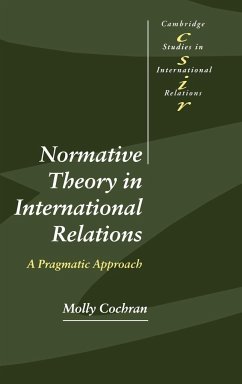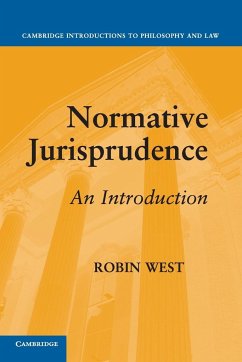
Normative Transformation and the War on Terrorism
Versandkostenfrei!
Versandfertig in 1-2 Wochen
101,99 €
inkl. MwSt.
Weitere Ausgaben:

PAYBACK Punkte
51 °P sammeln!
"The value of a pragmatist and relational view of normativity lies in two contributions. The first is that which escapes the 'co-constitutionalist' binary that is ontologically embedded in most existing IR theories of norms. Co-constitutionalist theories envision a world where norms are discrete social structures that are reflexively or recursively linked to the agency of individual actors. In other words, norms shape what people do and then in turn are shaped by those doings. This approach makes a great deal of sense in considering major revisions in how states conduct themselves, such as the...
"The value of a pragmatist and relational view of normativity lies in two contributions. The first is that which escapes the 'co-constitutionalist' binary that is ontologically embedded in most existing IR theories of norms. Co-constitutionalist theories envision a world where norms are discrete social structures that are reflexively or recursively linked to the agency of individual actors. In other words, norms shape what people do and then in turn are shaped by those doings. This approach makes a great deal of sense in considering major revisions in how states conduct themselves, such as the emergence of movements for total bans on particular kinds of weapons or for an end to institutionalised practices such as slavery. It makes less sense, however, when actors deny that a new norm has emerged, even when they have embraced new practices that would previously have been widely considered counternormative. It also makes less sense when it is unclear to scholarly observers whether a norm is being violated, whether it has disappeared entirely, or whether it has changed in referent even if not in name. For cases such as these, clarity and analytical purchase is best found in breaking 'norms' down into their component social parts"--














